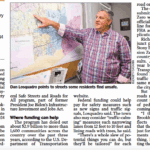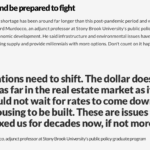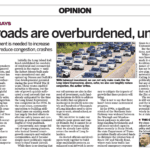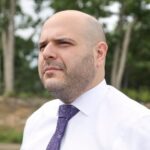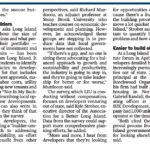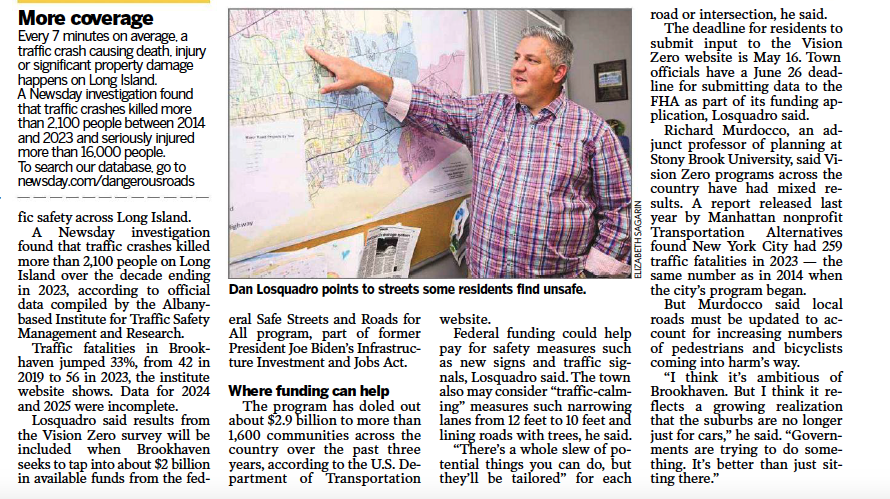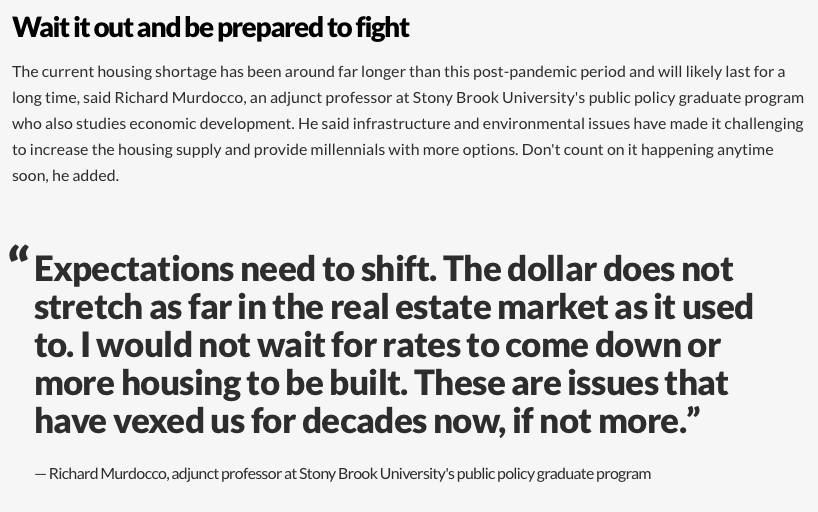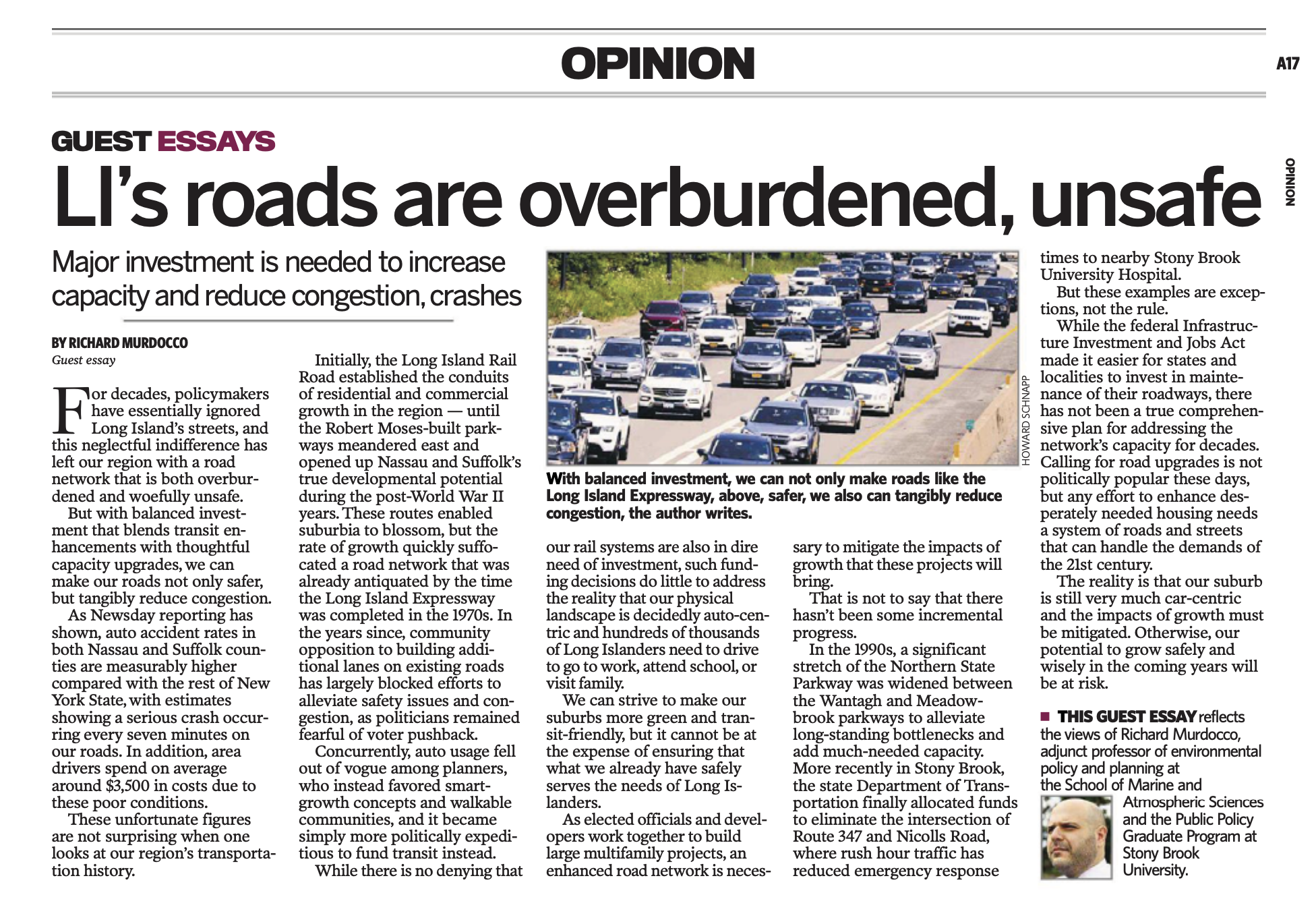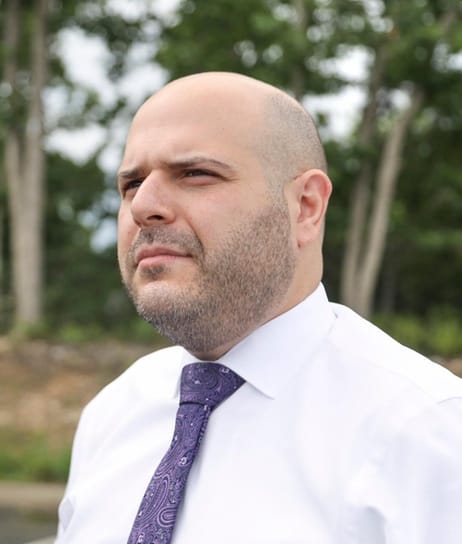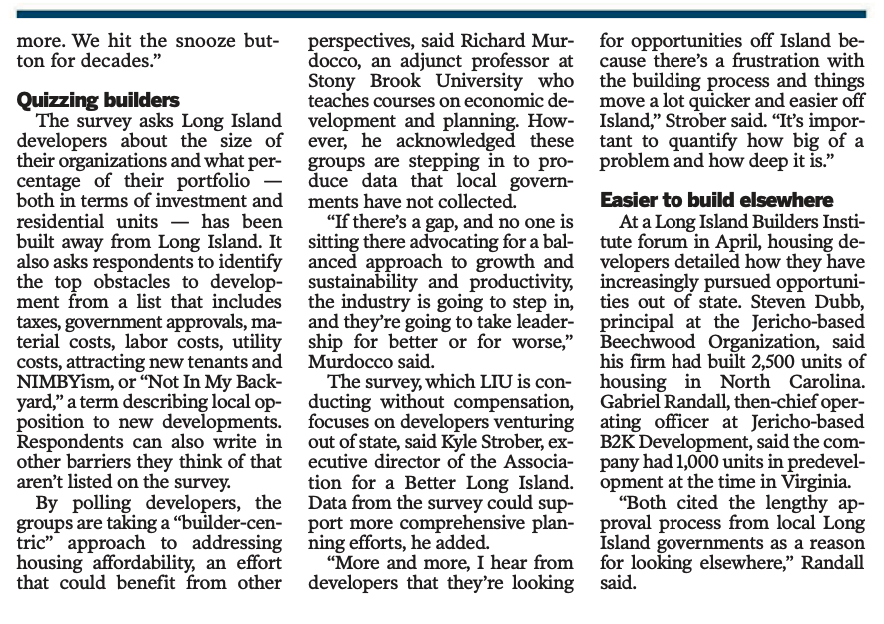The following are answers to The Foggiest Five, a set of questions asked to influential Long Islanders on the future of the region. This round features answers from David Calone, who is the chairman of the Suffolk County Planning Commission. Like Andrew Freleng’s responses before him, David’s answers reflect a balanced approach to the growth of the region. The views presented are the author’s alone, and do not represent those of The Foggiest Idea:
1. What is your favorite part of living on Long Island?
My favorite part of living on Long Island is being able to share my love of living near the water with my wife and three young children.
2. What is our greatest regional challenge?
Our greatest regional challenge is making sure that people can afford to live here and businesses can afford to grow here.
3. What is an easy first step to solving this challenge?
A significant driver of our cost of living challenges is housing. This is the complaint we hear most often from both young people and from businesses. We need more diverse housing options so that there is a ladder of housing opportunities for those at different stages of life. The good news is that the market is starting to respond to this need. The vast majority of housing applications we have seen at the Suffolk County Planning Commission over the last two or three years have included multi-family components — both ownership and rental. This is true on the East End as well as in western Suffolk. These types of projects can be accelerated if towns and villages re-zoned areas that are appropriate for such development – like sewered downtowns and near transit – so that they can be developed “as of right”. County or state incentives would be a good catalyst for such zoning changes.
4. What has been the biggest change that you’ve seen on Long Island during the course of your career?
Over the last few years, I have been very pleased to see the growth of Long Island’s entrepreneurial community. Between the emergence of the LI Angel Network, the LaunchPad facilities, the COMETS start-up training program, and the creation of Accelerate LI, there are a lot of great things going on to create Long Island’s economy of the future. I co-founded the LI Emerging Technologies Fund to help start and build LI’s next generation of companies by commercializing technology developed at our local research institutions. This year, in collaboration with Accelerate LI, we expect to create 10 new Long Island companies for the first time ever.
5. What do you think Long Island will be like in 20 years?
We are actually currently in the process of developing Suffolk’s comprehensive strategic plan which is looking out about twenty years. Such an overarching plan has not been developed by Suffolk County government since the 1970s. I believe that as a region we need to focus on increasing our capacity for economic growth. That means investments in infrastructure (particularly sewers where appropriate to allow development while protecting water quality), support to help grow local businesses using “economic gardening” techniques, continuing to improve our community college system to match the skills learned with the jobs available, and creating means for the existing wealth on LI to more easily invest in LI to create high-wage jobs here. Given the environmental sensitivities that come from living on an island and above a sole source aquifer, economic growth needs to be done in a sustainable way. The good news is that the jobs created by our new research-oriented companies will be relatively low impact and, with County Executive Bellone’s leadership, we are moving toward financing sewers – mostly in the western half of the county with a few targeted locations on the East End – that will encourage growth in areas where we can minimize environmental and traffic impacts like in our downtowns or near transit hubs.
David Calone is the CEO of Jove Equity Partners LLC, a venture capital firm that helps build technology companies in the internet, software, digital media, energy, real estate, transportation and health care industries. He serves as a director of seven privately-held companies located throughout the country and is a co-inventor on seventeen issued U.S. patents relating to internet messaging and to optimizing medical treatment based on comparative treatment effectiveness data. He helped organize the recently formed bipartisan Congressional Caucus on Innovation and Entrepreneurship in the U.S. House of Representatives, through which he has been a leading advocate for federal policies that promote job creation through the development of start-ups and other small businesses. In this capacity, he helped create “Start Up Day Across America,” connecting federal, state and local officials with early stage companies in their region. He is also the founder of the newly launched Long Island Emerging Technologies Fund which creates and provides seed funding for early stage technology companies on Long Island. He serves on the National Steering Committee for the Techstars Patriot Boot Camp which helps veterans from around the country start technology-based businesses.
Since 2008, David has served as the Chairman of the Suffolk County Planning Commission. He has led the Commission to focus on land use policies with regional impact including infrastructure financing, regulatory streamlining, energy efficiency and distributed generation, water protection, smart growth, housing diversity and public safety, and has helped initiate Suffolk County’s first Comprehensive Plan effort in over 30 years. He spearheaded the LI Unified Solar Permitting Initiative which has since been adopted as the model for permit streamlining across New York State and for which Suffolk County was awarded a National Association of Counties’ 2012 National Achievement Award.
David is also on the Executive Committee of the United Way of Long Island and on the board of directors of Accelerate Long Island, the Long Island Angel Network, and the Community Development Corporation of Long Island and serves as a member of the advisory board of the Long Island Index and on the Dean’s Advisory Council for the Stony Brook University College of Business.
He is an honors graduate of Harvard Law School and has an economics degree from Princeton University where he was named a USA Today College Academic All-American and was the first person in Princeton’s history to be elected twice as student body president.
David lives in Setauket, New York with his wife, Kate, a Presbyterian minister, and their three young children.


